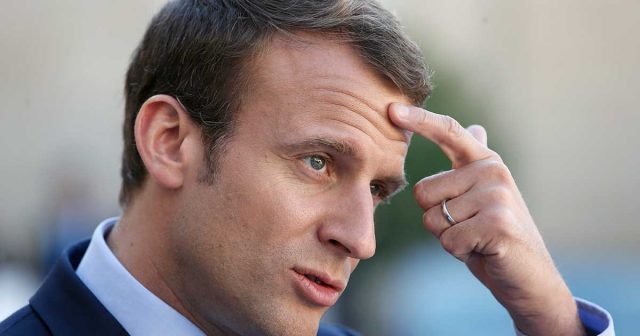France and Germany have betrayed Ukraine. How could they be trusted to defend the smaller EU states?
n the dizzying days after Putin’s invasion of Ukraine in February, Emmanuel Macron announced that “European defence must take a new step” – towards the creation of an EU army. Yet six months on, with the war still raging, it is clearer than ever that such a proposal could never work.
There were always serious problems with Macron’s approach. For starters, an EU army would not necessarily command loyalty in the way national militaries can, and any semblance of unanimity, which would be required to launch offensive operations, might prove difficult to wrest from 27 disparate countries with distinct and diverging senses of the national interest.
But the Ukraine war has proved beyond a shadow of a doubt that an EU army could never work. Why? Because the countries of ‘New Europe’, members who joined after the fall of the Iron Curtain, now know that they simply cannot rely on their larger counterparts. Politicians of Estonia and Poland are fast learning that the major powers in Europe (France and Germany) have startlingly little interest in their security.
Even now, with Zelensky in a strong position, the leaders of France and Germany cannot be entirely counted upon to take Ukraine’s side when doing so will convenience them. And what if the war had gone well for Putin? Taking Ukraine would not have sated his ambitions, and soon, surely, his eyes would be on the Baltic states.
In such an eventuality, an EU army would supposedly be ready to throw all its might behind the defence of Estonia or Lithuania. But on the evidence we’ve got, that is difficult to believe.
Instead of standing up to Putin, Macron has been playing the appeaser from day one. In the early days of the war, he insisted that Russia and Putin should not be humiliated, and pushed for a ‘peace’ deal which would have allow Russian forces to regroup, and prepare for another attack westwards. When Putin threatened nuclear blackmail by turning the Zaporizhzhia nuclear power into a bomb, Macron was back on the phone, ready to give him concessions.
For Macron, it seems clear, Ukrainian agency is still secondary to his own ideas of what is right in geopolitics.
Germany, meanwhile, has repeatedly and spectacularly failed to fulfil its promises to help arm Ukraine.
An EU army run by these countries could clearly not be counted upon to defend the smallest countries in the Union.
In fact, it is the United Kingdom, after Brexit, that is leading the defence of Europe. It has signed mutual defence agreements with Finland and Sweden in advance of their accession to Nato. It is giving weapons to Ukraine at top speed. And it is leading efforts to train Ukrainian troops on British soil, which other countries have flocked to support.
Countries like Finland and Sweden appear more enthusiastic to join bi-lateral defence pacts with Britain than rely on a future European army for their protection.
And those countries within Europe know that they must take their defence in their own hands, rather than rely on any European army proposed on Macron’s lines.
If the French President hoped that this war would advance his defence aims, he will now be bitterly disappointed.
Prof Azeem Ibrahim OBE is a Research Professor at the Strategic Studies Institute US Army War College








